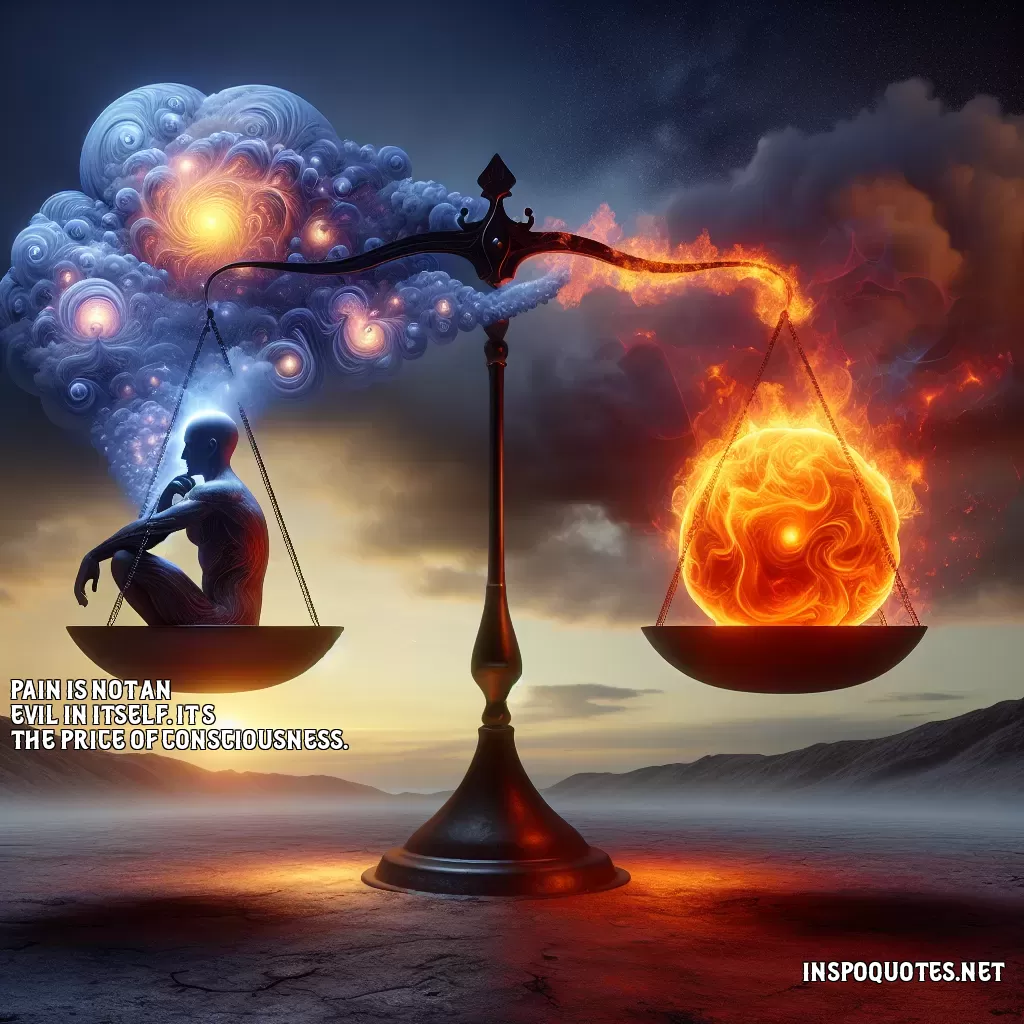
Pain is not an evil in itself. It’s the price of consciousness.
Author: William James
👁️ 21 views
The quote "Pain is not an evil in itself. It’s the price of consciousness" suggests that pain, often viewed negatively, is an integral part of being conscious, self-aware beings. Pain is frequently perceived as malevolent due to the discomfort and suffering it causes, but this perspective undervalues its essential role in human existence. Firstly, experiencing pain enables beings to recognize danger, protect themselves, and survive. This protective aspect gives pain a functional role beyond simple suffering, signifying that it isn't inherently evil. For instance, the physical pain of touching a hot stove teaches us to quickly withdraw and avoid harm. In this regard, pain acts as a teacher, helping us understand our limitations and the boundaries of our physical world. Additionally, pain is intrinsically linked to emotional growth and empathy. It increases our capacity to relate to the suffering of others, fostering connections and deepening our understanding of the human condition. By experiencing our own pain, we become more compassionate towards others who are suffering, encouraging a sense of shared humanity. The phrase "the price of consciousness" highlights that the experience of pain is inextricably linked to self-awareness and the capacity to feel. For humans, consciousness brings with it the ability to reflect, perceive, and create meaning from our experiences, which includes enduring pain. Ultimately, pain allows us to define moments of joy and happiness more clearly, as it provides contrast and perspective. Thus, while it is natural to attempt to avoid pain, acknowledging its presence as part of the conscious experience enables individuals to embrace its role in personal growth and understanding. Pain, as such, should not be labeled solely as evil but recognized as a necessary aspect of living a conscious life.
Quote By: William James
William James (1842-1910) was an American philosopher and psychologist, widely regarded as the "father of American psychology." A leading thinker in the pragmatism movement, he emphasized the practical consequences of belief and the importance of individual experience. His seminal works, including "The Principles of Psychology" and "The Varieties of Religious Experience," profoundly impacted both psychology and philosophy, establishing him as a key figure in the development of modern thought.
Bio added on: 2025-02-16 19:05:30